With the anniversary of same-sex marriage legalization approaching on June 26, a new documentary, The Freedom to Marry, is highlighting the work that went into achieving nationwide equality. Led by Freedom to Marry founder Evan Wolfson and attorney Mary Bonauto, the trailblazing civil rights movement was one of history's most successful, though the road to justice was still met with tremendous resistance.
Related | Watch an Exclusive 1986 Interview with Gay Marriage Crusader Evan Wolfson
The Eddie Rosenstein-directed film is as much a history lesson as it is a relevant blueprint for political resistance today. Throughout the doc, Wolfson and his team of LGBTQ crusaders are shown facing opposition not only from the Supreme Court, but from fiery, homophobic citizens, as well. Deeply suspenseful and inspiring, The Freedom to Marry highlights the winning combination of strategy and human emotion needed to make the dream of marriage equality a reality.
With Pride month in full swing, OUT caught up with Wolfson to reflect on the legacy of his triumphant movement and why The Freedom to Marry is so impactful in President Trump's America.
OUT: Watching Freedom to Marry as a young person is especially insightful, because my experience growing up as an LGBTQ person has been so different from the subjects featured.
Evan Wolfson: I actually hope this film will be seen by lots of young people here in the U.S and around the world, because I think it says you can make a difference. It says your voice matters. There are ways to really make the world better, and we need you. I think young people are a key part of how we achieve change, and there is plenty of change needed in the United States and around the world.
It's important for young people to see where the queer community came from.
That's exactly right, and that change just doesn't happen by itself. It's neither impossible or inevitable. It takes work. It's belief. It takes trust that others will rise if we engage them. I think young people played an important role in our winning the freedom to marry. And with our country so on [the] wrong track and with so many challenges around the world, there are plenty of opportunities for people to get engaged. This film is a good way to start.
Your movement happened just as the Internet was starting to really take off. Do you think it would have had the same effect if it wasn't such a physical movement?
Everything doesn't just happen online. The thing that really drove the change were personal conversations that people had with their friends, families and neighbors--and political and legal organizing in the courts and legislatures. Ultimately, it is a balance. But you're absolutely right that the online ways of reaching people, mobilizing people, educating people were terrific tools that we put a lot of effort into learning relatively early. But as my online team always said, their goal was to use their digital expertise and online programs to get people to take action offline.

When you were documenting the movement, did you anticipate the world becoming as LGBTQ-friendly as it is today?
Yes, it is both true that we have seen a tremendous transformation in many parts of the world in hearts, minds and in the law. And also, equally important, there are many parts of the world where things are dire and horrible. We have so much more that we have to do. And actually, there is nowhere that we are finished. In the United States, we've won this enormous transformation and victory. And yet, we have so much more to do for LGBTQ people, let alone for the country as a whole. That's true all around the world. I always believed that we could change things. I always believed by claiming the vocabulary of marriage that we'd be claiming an engine of transformation that would help move things forward. I trusted and believed that if we did the work, we could actually make things better. So yes, I did think we'd get to this place, but I fully believe we can't stop here.
Of all the rights you could've tackled, why do you think fighting for same-sex marriage was a strong first step toward achieving full equality?
That's a great question. The only thing I'd quibble with is the idea of first. I think we actually worked on many things at the same time, and even I, who am identified as much as anyone in the world with marriage, worked on other goals, as well. I argued the boy scout case in the Supreme Court; I worked on AIDS cases; I worked on employment and military cases. I don't think it is a matter of there's only one thing we care about. But at the same time, by claiming this language of marriage we would be claiming this very powerful conversation that would move everything forward. So, for example, the debates and progress we've seen around transgender people in the last two years, in part, reflects the lift that the marriage engagement gave to an aligned goal. Similarly, we can take the power of marriage work and keep pushing for nondiscrimination protections, for safe school, for support for seniors, and for global human rights. I believe by fighting effectively for something like marriage, and I believe that marriage is important and singularly resonant and powerful, we can be harnessing the power we build to the other work ahead.
Related | OUT100: Evan Wolfson
Is there any concrete evidence that legalizing same-sex marriage has positively affected the LGBTQ community?
Just about two months ago, one of the leading medical journals in the United States, The Journal of the American Medical Association Pediatrics JAMA Pediatrics published a study in which they reported that when we won the freedom to marry, teen suicide dropped dramatically. The rate of teen suicide falls when we win marriage. And now that we won the freedom of marriage nationwide, we are going to be saving 130,000 young lives every year. Now why is that? It's not because teens are going out and getting married tomorrow. It's because marriage is not just about marriage. By winning the freedom to marry we send a strong message that society, the government and the culture affirm that young gay people, young trans people and their dreams. I really believe in that power. And it's no longer a theory. We now know this is true, and that is why I spend my time advising, sharing and working with other countries like Taiwan, where we just won a big victory.

You're working with other nations on marriage equality, as well?
Yes, one off the happy consequences of winning is that people want to hear the ideas and lessons that you can share about how we won. So I've been working with advocates in many countries including Taiwan to keep moving forward globally, even as I'm also advising and working with many different causes and organizations, not LGBTQ, here in the U.S.
Related | Taiwan Becomes First Asian Country to Legalize Same-Sex Marriage
How do you feel rulings, like in Taiwan, have a global effect?
I think one of the key things we need to do, and this again is a lesson from the previous American campaign, is build a critical mass of victory in order to move the whole. In the same way that we had to win a critical mass of states and a critical mass of public opinion in order to win national victory in the U.S. We need to be getting what I call the B's to A's around the world. The countries that do believe in human rights, pluralism and democracy and have free press and an independent judiciary, we need to make sure that they live up to true human rights, and the promises they make in their constitutions in order to build a critical mass that will help move the globe forward.
Why do you think releasing this documentary is especially relevant, right now?
Because the lessons that the film captured so dramatically from this campaign are more relevant than ever. If you want to summarize how we won the freedom to marry in three words, the words would be: hope, clarity and tenacity. You need to have hope. You need to believe that you can change things no matter how difficult or bad they are. You need to have clarity. You need to focus on your goals. Focus on strategy, focus on what it takes to win. Focus on the critical mass you need, and don't get distracted by the opponents of the things you can control or don't need. You need to have tenacity. It doesn't happen overnight. You need to stick with your strategy and continue conveying hope, even when you take some inevitable stumbles and disappointments. We did all those things and the film shows that. Those are absolutely the lessons that people need to keep in mind as we work to get our country back on track after that catastrophic election. And as we work to continue advancing human rights and working for all the different communities and values that we believe in.
The Freedom to Marry is available now for instant download online.
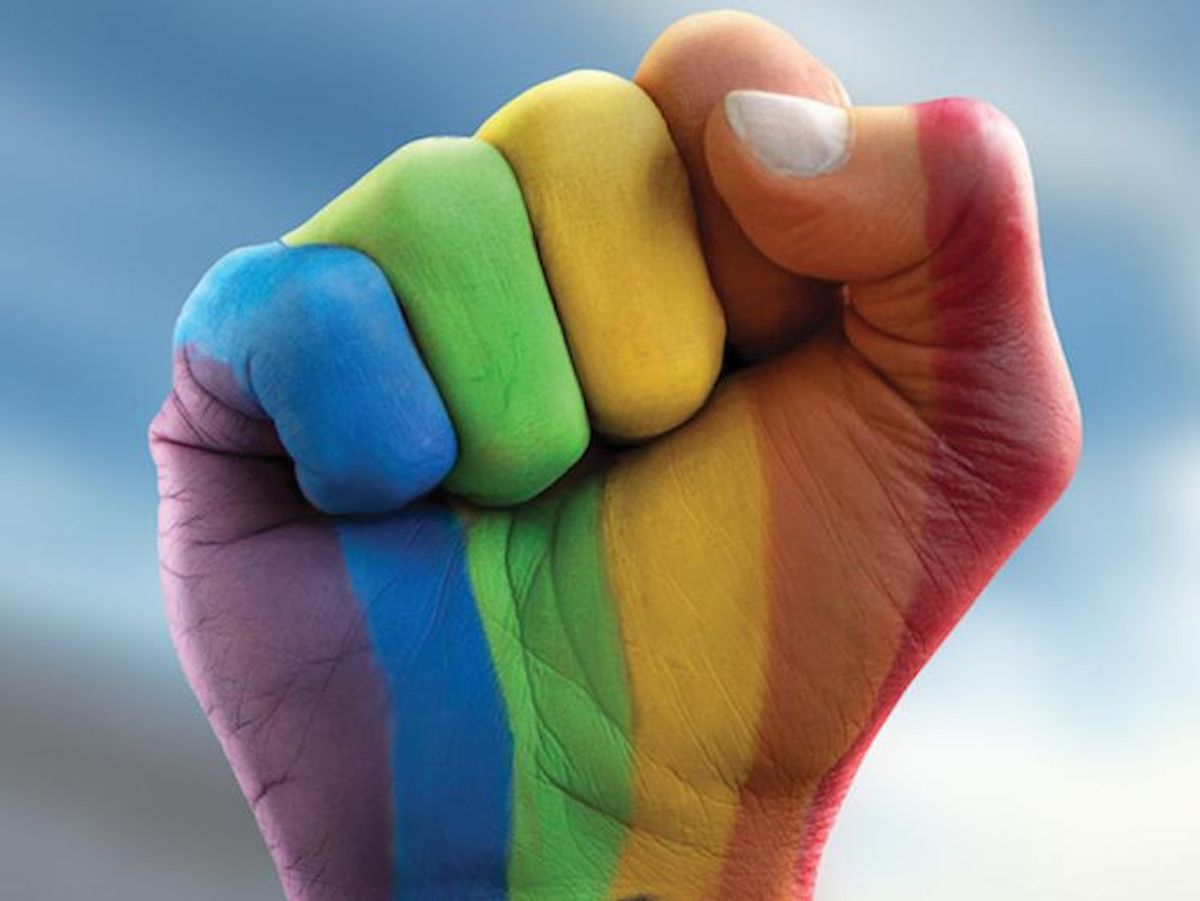



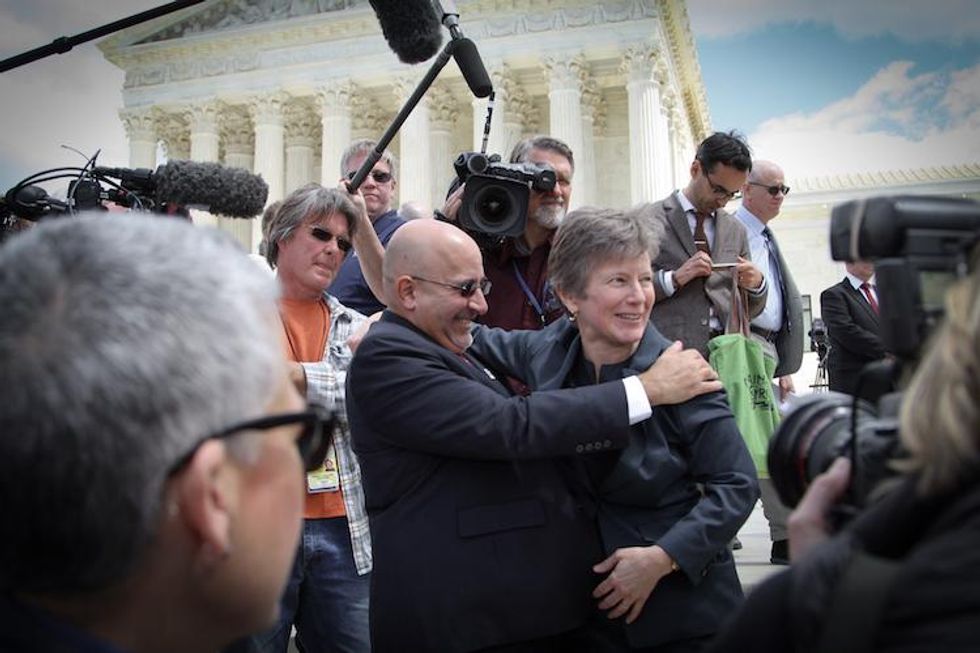
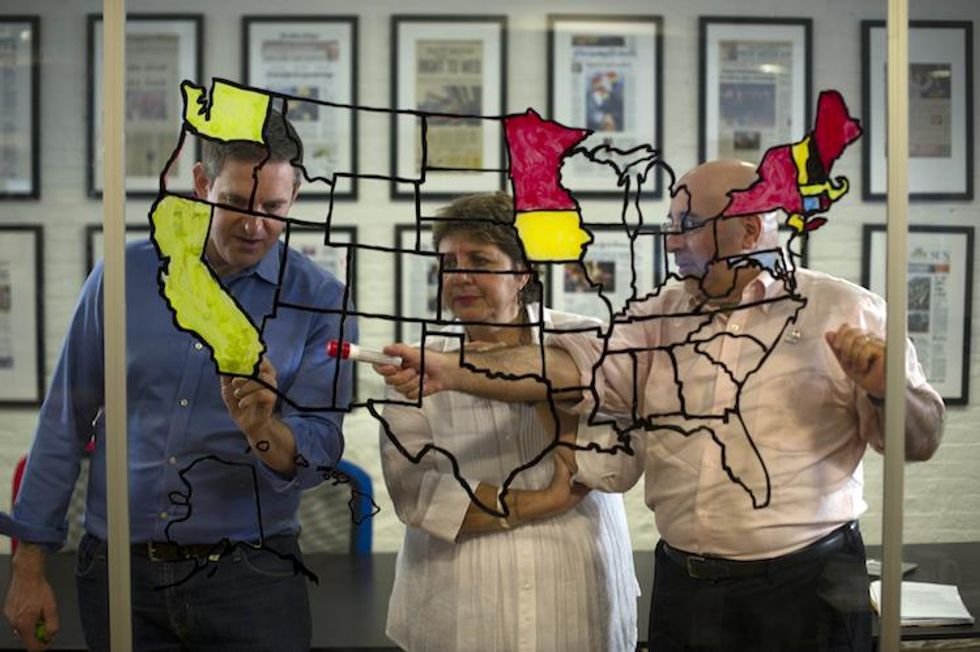
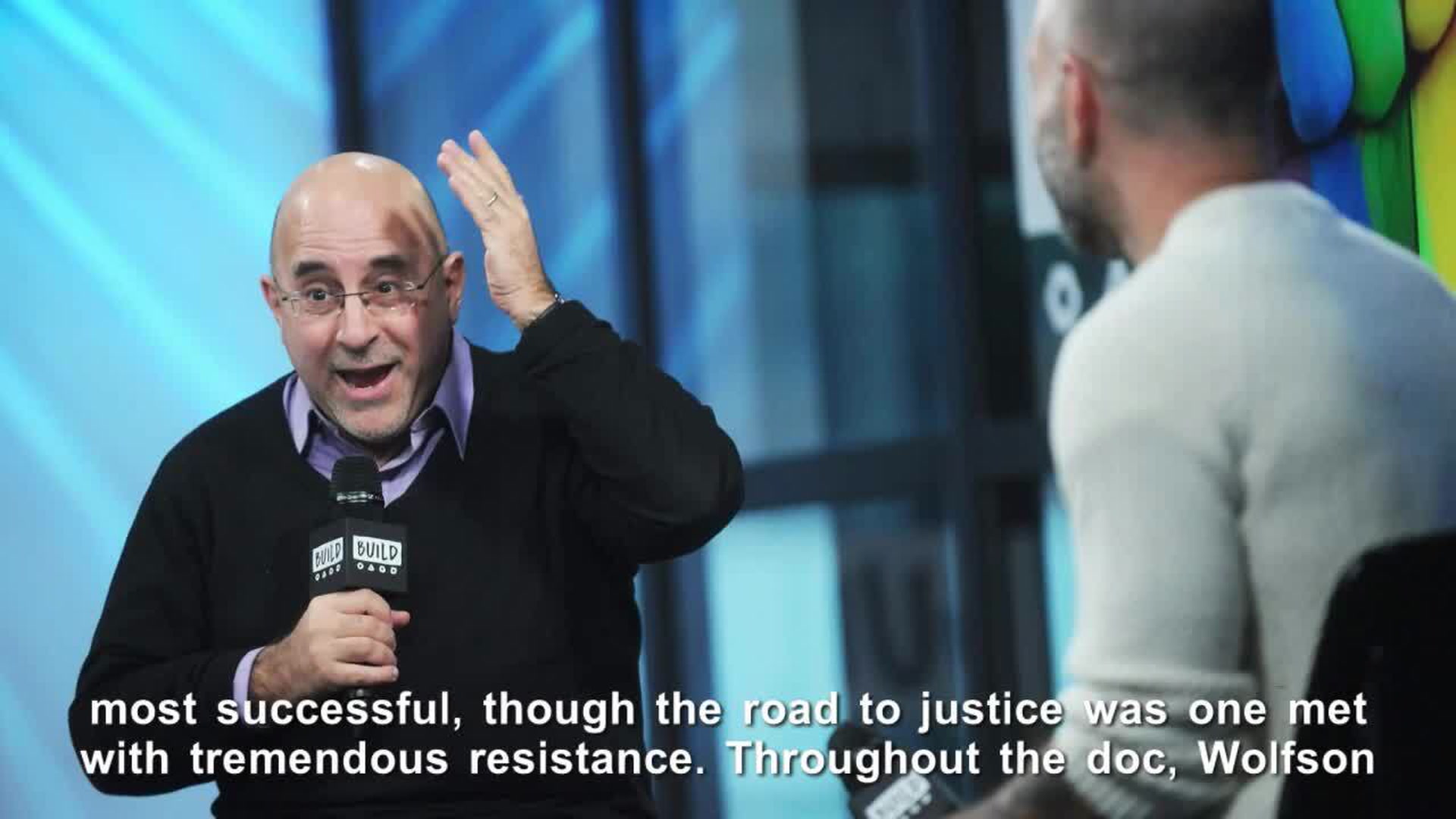























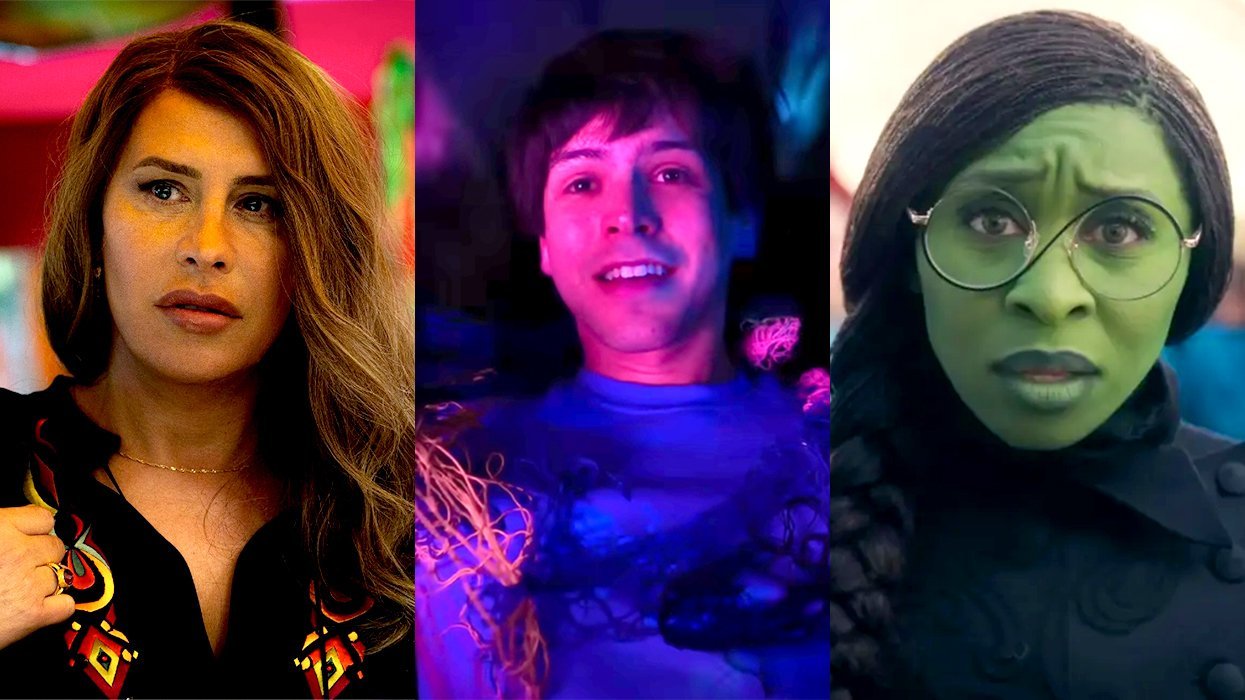








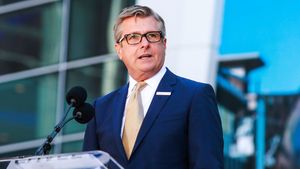











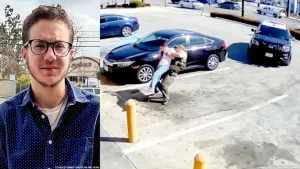
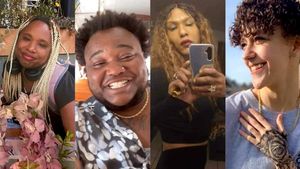



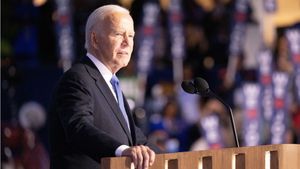

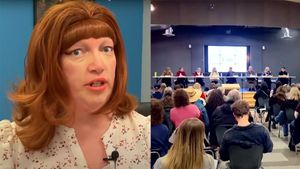


























Sexy MAGA: Viral post saying Republicans 'have two daddies now' gets a rise from the right